TESTIMONY OF THE DAY
“Dear Maria and Craig, I recently bought your accelerated package which is amazing. I have already lost about 4 kgs (8.8 pounds)- not weighing again until Thursday (end of second week).
Also have lost all cravings for sweet things. Fibromyalgia symptoms are reduced and no headaches since day 4!
I cannot believe how wonderful this plan is. I have been unable to lose weight for EVER. I am 59 so at the wrong end of the life cycle and have lost so much muscle over the years with yoyo dieting.
Most people I consult are doing keto totally wrong. Get fast results with the my NEW Keto Packages!
Click HERE to check out my NEW Keto Packages!
Omega-3’s are Poly Unsaturated Fatty Acids (PUFA’s) and become oxidized easily. Oxidation causes inflammation in the body which is the source of many health issues. Through a lot of research I have come to the conclusion (and this is new and going to be a big shift in the health community) that the PUFAs EPA and even more so DHA are oxidized at room temperature and in the body. So in supplement form, there is a lot of oxidation prior do ingestion (and after) which causes inflammation. HERE is one of many sources for this data.
The Complicated Liver Conundrum!
Too much fish oil/DHA can cause elevated liver enzymes.
Also, elevated liver enzymes don’t necessarily mean there is a problem with your liver. It may actually be functioning better than it used to, which means it will be more productive.
Also, if you are losing weight, the toxins from the fat being burned will have to be dealt with, so that too will make your liver work harder.
The best way to think about this is that PUFA’s are very unstable and are easily oxidized by heat, sunlight, in the body, etc. So this means that when you consume them you want to get the freshest possible source, cook it as little as needed (raw is best) and only get what your body needs. If you eat excessive amounts, the extra will be in your body longer exposing it to more oxidative damage which causes more inflammation. This is why I no longer recommend fish oil supplements. There is too much oxidation occurring prior to ingestion and the high doses result in more oxidation in the body.
So how do we determine how much Omega-3 we need in our diets from food sources? It depends on how much omega-6 we are consuming. As you may know the standard American diet is way too high in omega-6 oils (vegetable oils, soybean oils, corn oils, margarines, etc) and not high enough in omega-3’s. We want to have about a 1:1 ratio of omega-6 to omega-3 but most Americans today get 20:1 or even 40:1. So the typical American diet has (based on 2,000 calories a day) 9% of calories coming from omega-6. To match this with omega-3s you would have to increase your omega-3 intake to about 11 ounces of oily fish a day!
But the body doesn’t really need that much omega-3 and 6 and as stated above, the extra becomes oxidized. So a much better strategy is to greatly lower your omega-6 intake and then match it with omega-3. If you follow my blog and this lifestyle, you are going well with this already. Eliminating processed foods, fast foods cooked in vegetable oils, corn oils and soybean oils. So if you limit this to just the sources is a lifestyle like I advocate you are looking at an omega-6 intake much closer to 2% of calories. To match this with omega-3 you would need to eat about 4 ounces or oily fish 2 times a week. This will give your body more than enough omega-3 and 6 than it needs and keep your consumption of PUFA’s low so there is as little oxidation as possible. In reality, you don’t even need that much fish as there are many sources of omega-3 already in your diet (discussed below). Meats, eggs, avocados, herbs and spices.
Four big takeaways:
1. Ditch the omega-3 supplements (Krill oil, Fish oil, Cod liver oil, etc). You can easily get enough omega-3 from food sources. More is not better as your body needs very little for proper function and any extra will be oxidized and cause inflammation.
2. Keep omega-6 intake as low as possible. Shoot for 2% of calories or less.
3. Match omega-6 with omega-3 from very fresh, lightly cooked (raw is best) foods. In this case about two 4 ounce serving of oily fish a week (about 6000mg of omega-3 a week).
4. Get your fats from stable sources high in Saturated Fatty Acids (SFAs). With this lifestyle fat is your fuel and you want to most stable, most readily available source of fuel and that is SFAs.
Good Fats
Saturated fats like coconut oil, butter, ghee, tallow and lard are protective against oxidation and inflammation and have many other important health benefits. Remember that when keto adapted, fat is your fuel source. You need lots of healthy fats to burn as fuel. But you want them to be stable fats (not unstable PUFA oils) so look for the highest in Saturated fats (SFA). When it comes to looking for oils to include in this high fat lifestyle, the higher the stable saturated fat content the better. Here are the best oils:
- Coconut oil: 1.9% PUFA (92% saturated fatty acids (SFA)
- Palm kernel oil: 2% PUFA, (82% SFA)
- Cocoa Butter: 3% PUFA (60% SFA)
- Beef Tallow: 3.1% PUFA (49.8% SFA)
- Ghee: 4% PUFA (48% SFA)
- Butter: 3.4% PUFA (50% SFA)
- Lard: 12% PUFA (with 41% SFA)
- Duck fat: 13% PUFA (with 25% SFA)
- Macadamia oil: 10% PUFA (15% SFA)
- Avocado oil: 10% PUFA (11% SFA)
- High Oleic Sunflower oil: 9% PUFA (8% SFA)
- Hazelnut Oil: 14% PUFA (with 10% SFA)
- Almond oil: 17% PUFA (with 8.2% SFA)
- Olive oil: 9.9% PUFA (with 14% saturated fat) (although this one should never be used for cooking which will cause oxidation. So only use in dressings, etc.)
Bad Fats
There are two kinds of fats that should be avoided. The most inflammatory fat is Trans Fatty Acids (transfat). Transfats are one of the worst substances we can consume for our overall health. There are many studies that show the heart disease and cancer risks of transfat (source, source, and many more for cancer,source and source). Here is a list of transfats to avoid at all cost:
- Margarine
- Vegetable Shortening
- Ingredients that list Hydrogenated (fully or partially) Oils
Poly Unsaturated Fatty Acids (PUFA’s) are should also be limited as they are easily oxidated. There are many PUFA oils and here is a short list:
- Grapeseed oil: 70.6% PUFA
- Sunflower oil: 68% PUFA
- Flax oil: 66% PUFA
- Safflower oil: 65% PUFA
- Soybean Oil: 58% PUFA
- Corn oil: 54.6% PUFA
- Walnut oil: 53.9% PUFA
- Cottonseed oil: 52.4% PUFA
- Vegetable oil (soybean oil): 51.4% PUFA
- Sesame oil: 42% PUFA
- Peanut oil: 33.4% PUFA
- Canola oil: 19% PUFA
What has happened over the last 100 years is a huge increase in PUFA consumption and a reduction in other good fats (like saturated fat). Here is a chart showing the increase in PUFA consumption in the US.
My top choices for healthy consumption of Omega 3’s are:
These are all listed in mg of omega-3 per ounce. Obviously some are much easier to eat an ounce of than other but it gives a relative measurement of the density of omega-3 in each food.
1. Smoked salmon. 585mg per ounce omega-3. 48mg omega-6.
Click HERE to find a great recipe.
2. Sardines. 414mg per ounce of omega-3. 992mg omega-6.
Click HERE to find a great salad dressing with Sardines.
3. Fish broth.
Click HERE to find a broth recipe.
4. Basil. Even I underestimated the power of herbs when I think of Omega 3’s. 88mg per ounce of omega-3. 20mg omega-6.
Click HERE to find a tasty recipe filled with basil.
5. Oregano. 1170mg per ounce of omega-3. 294mg omega-6.
6. Cloves. 1198mg per ounce of omega-3. 724mg omega-6.
Click HERE to find a mouth-watering recipe filled with clove.
7. Marjoram. 905mg per ounce of omega-3. 329mg omega-6.
Click HERE to find an easy recipe to incorporate marjoram.
8. Anchovy. 414mg per ounce of omega-3. 27mg omega-6.
Click HERE to find a great way to hide anchovy into your diet!
9. Grass-fed Beef! 24mg per ounce of omega-3. 120mg omega-6. (and 1500mg saturated fat)
Click HERE to find my favorite beef recipe.
10. Quality Egg Yolks. 64mg per ounce of omega-3. 991mg omega-6. (and 2700mg saturated fat)
Click HERE to find the way I start my day with yolks!
11. Mackerel and other oily fish (salmon, tuna or trout!). 748mg per ounce of omega-3. 61mg omega-6.
Click HERE to find a tasty tuna recipe.

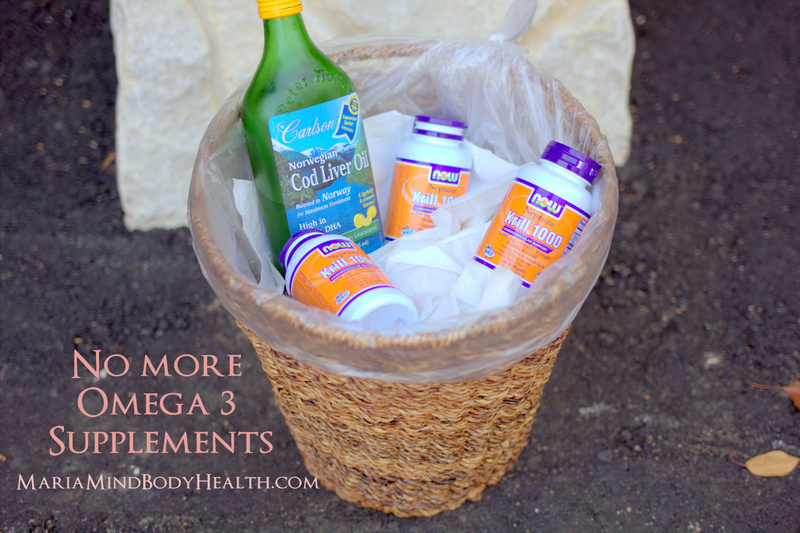
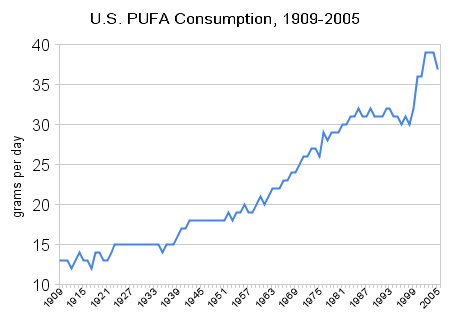
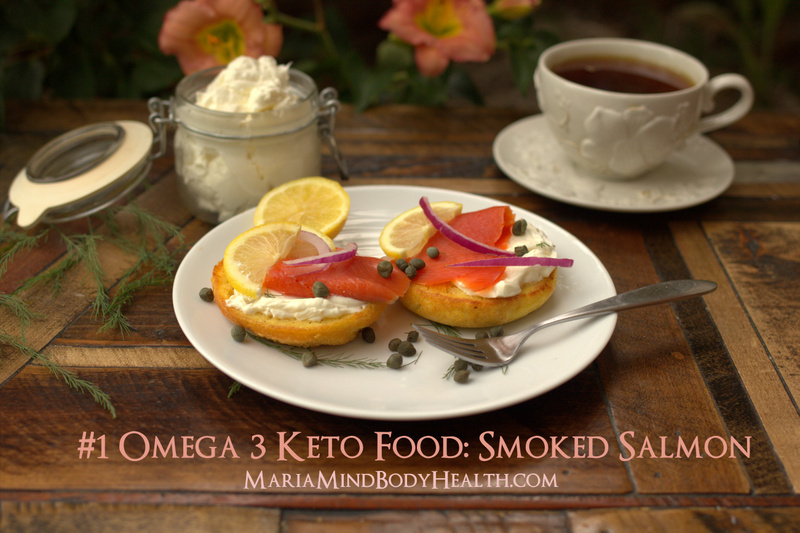
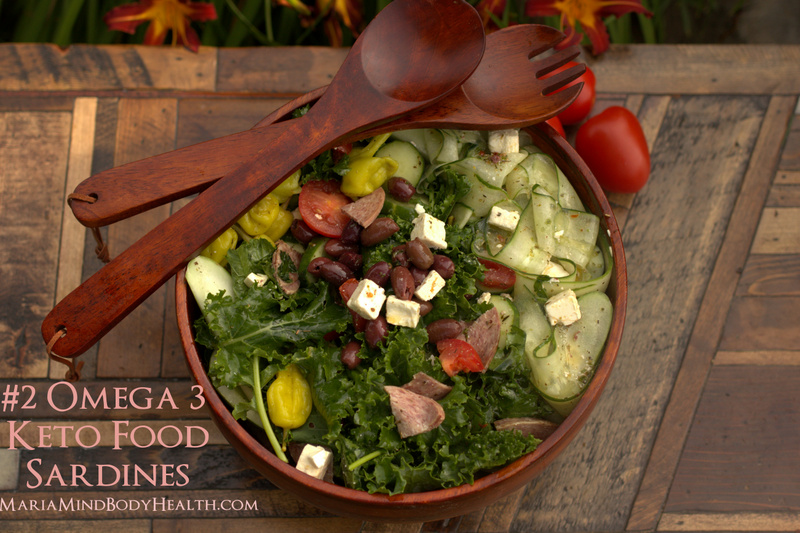
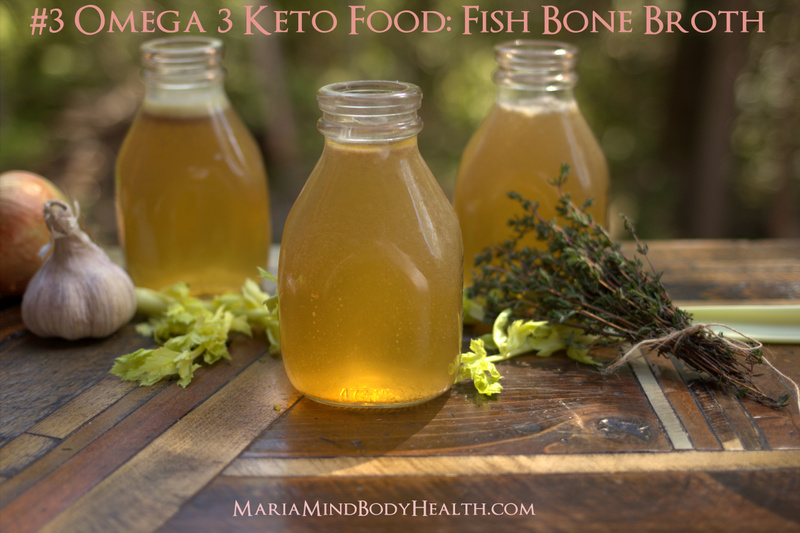
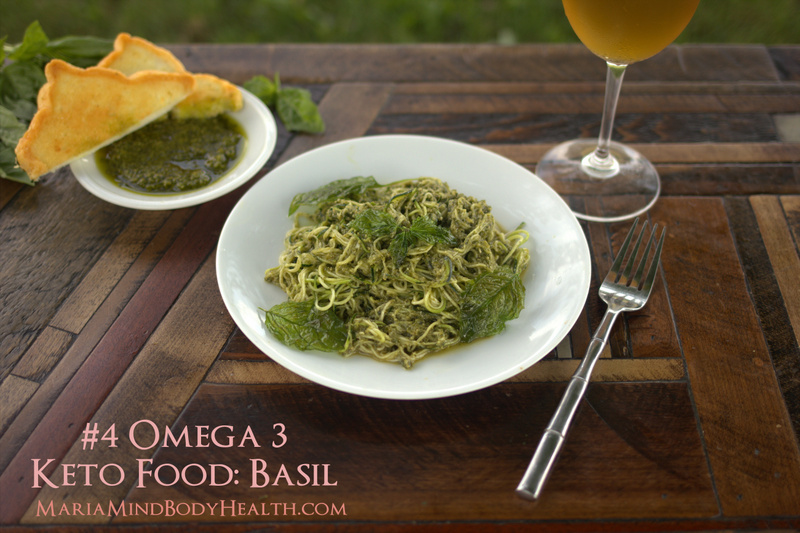
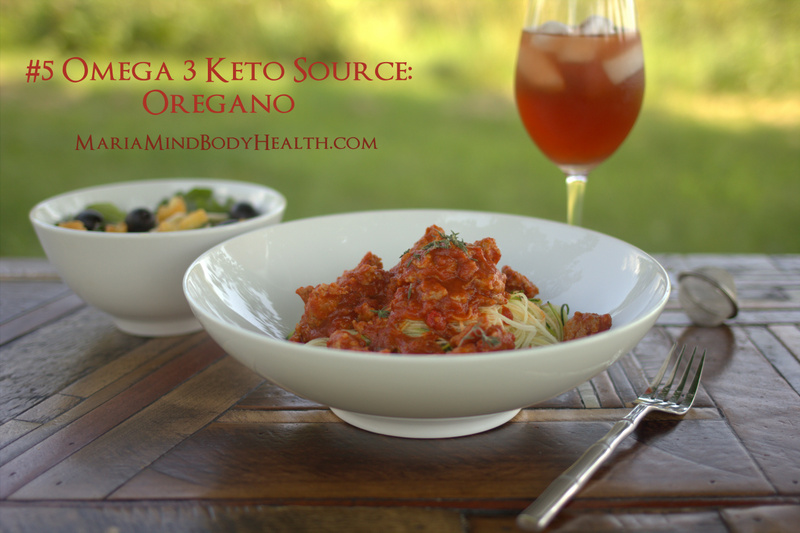
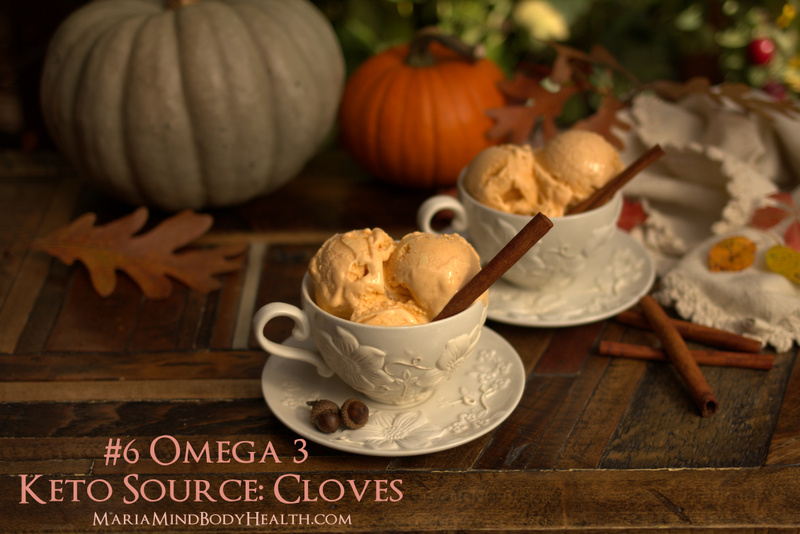
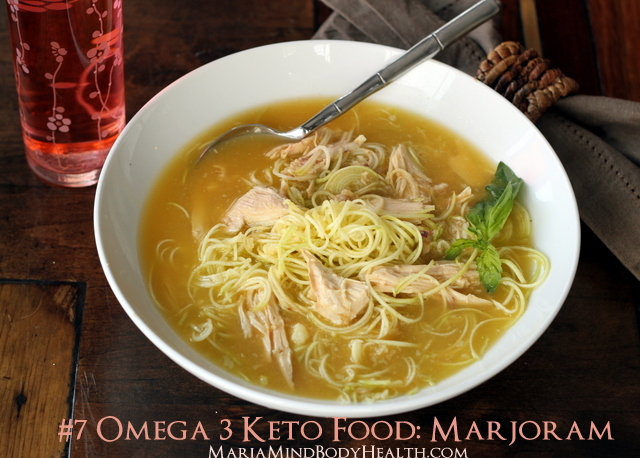

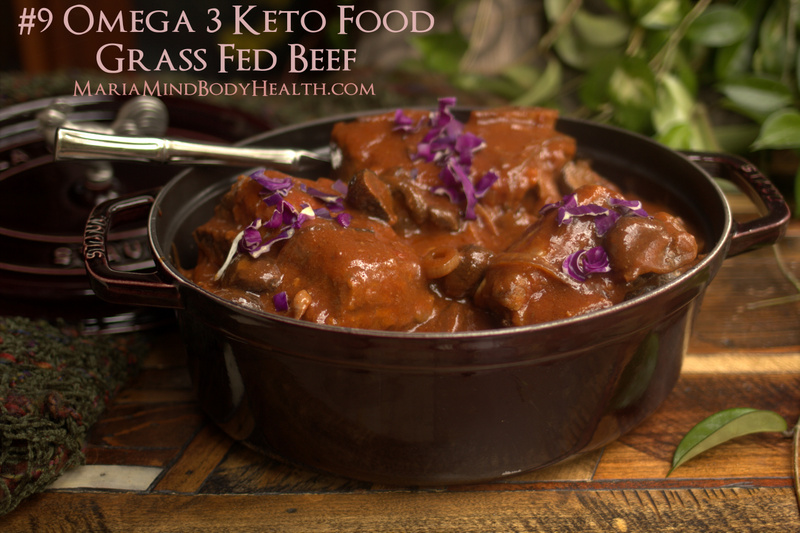
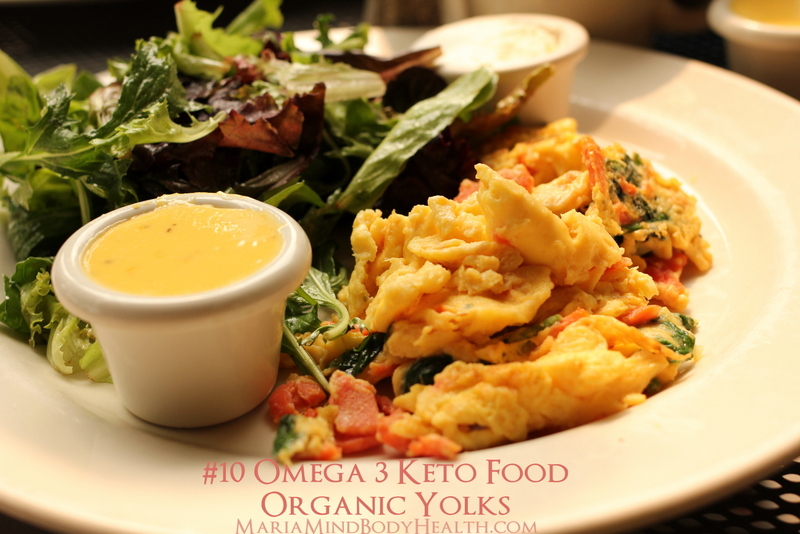
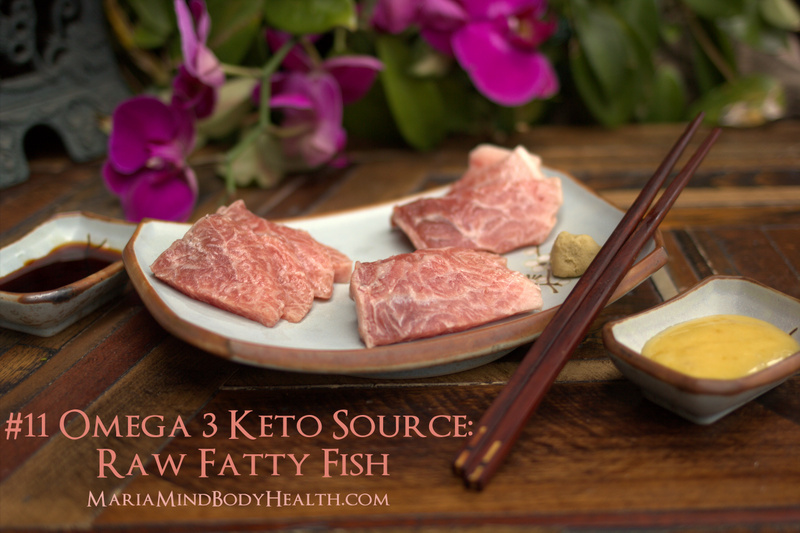
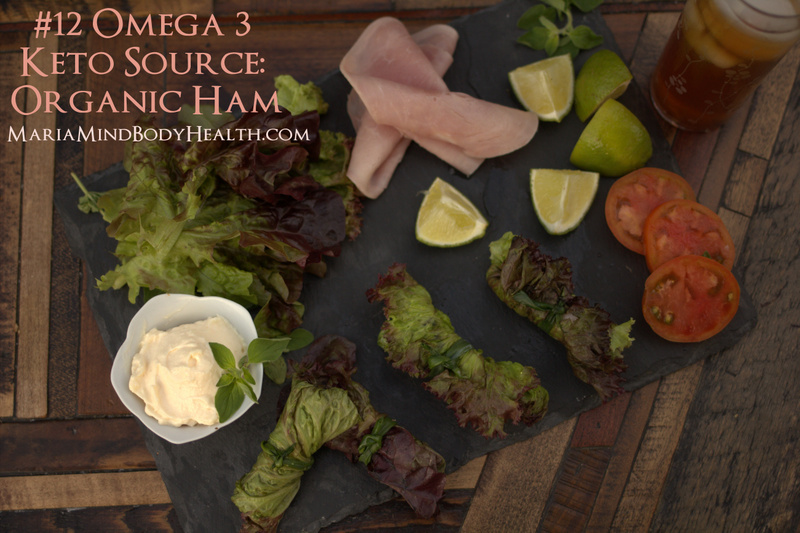
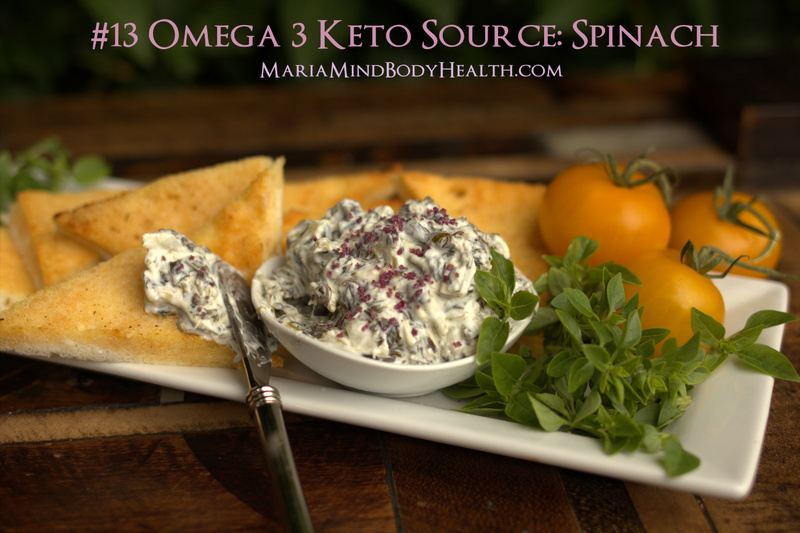
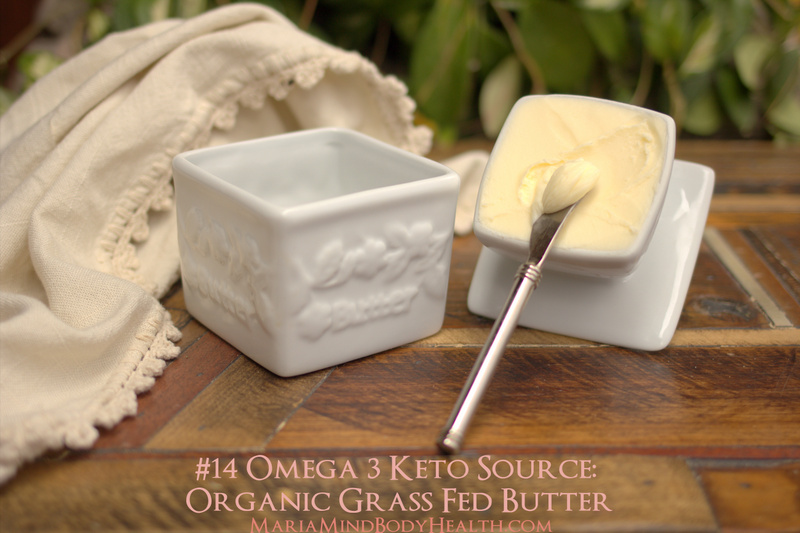

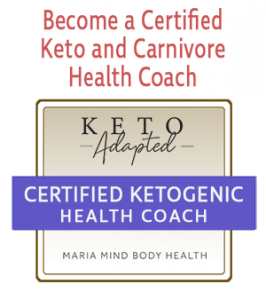

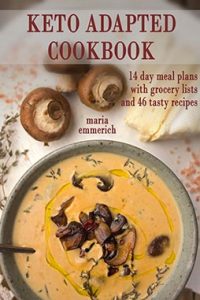
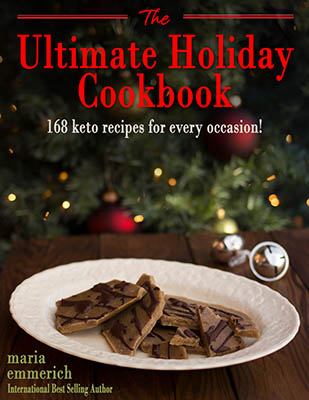
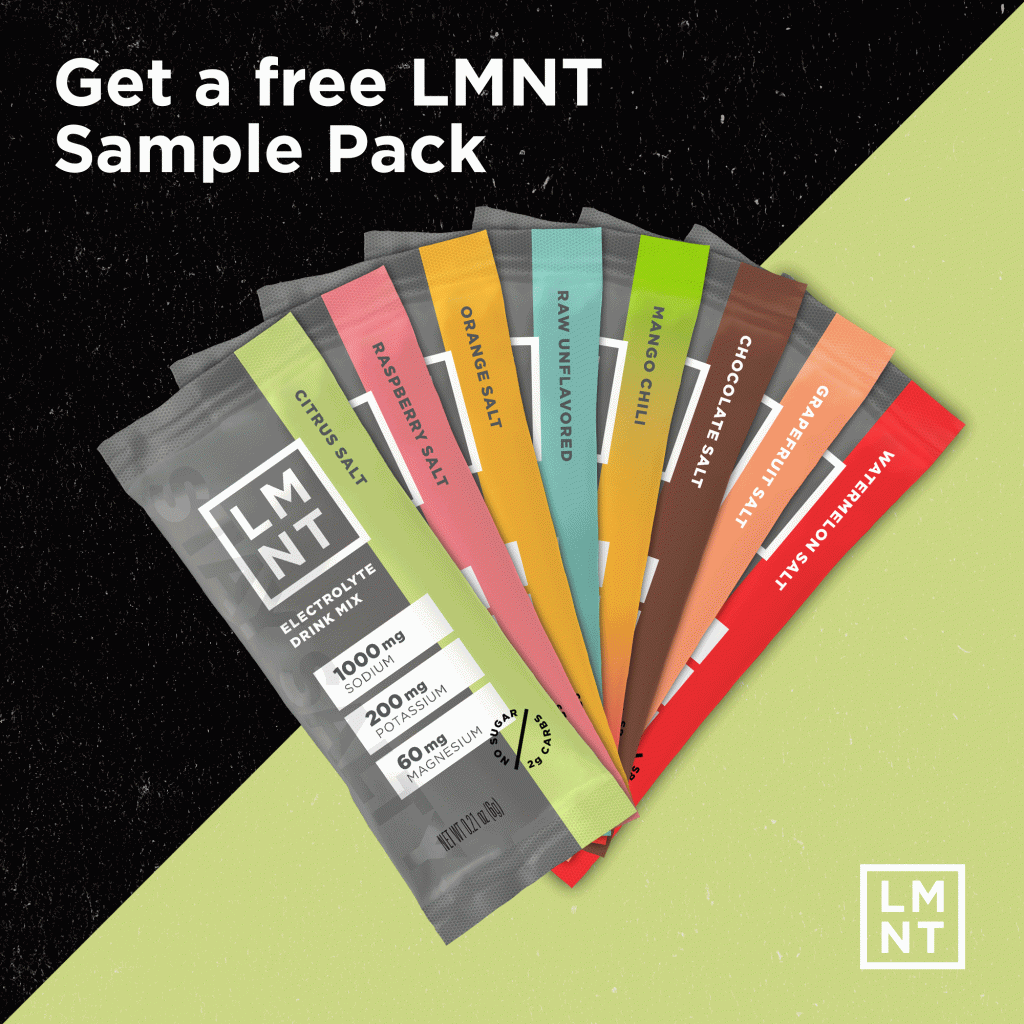



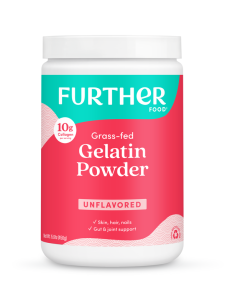

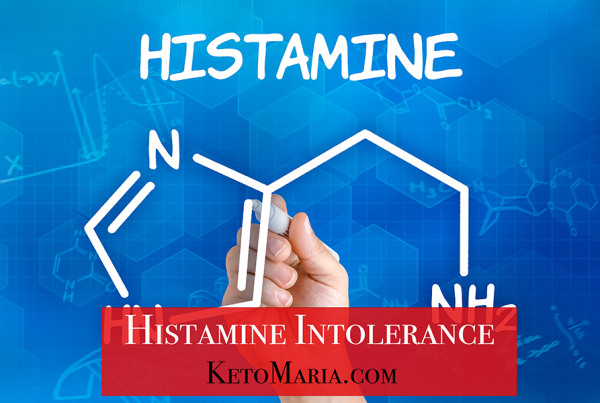
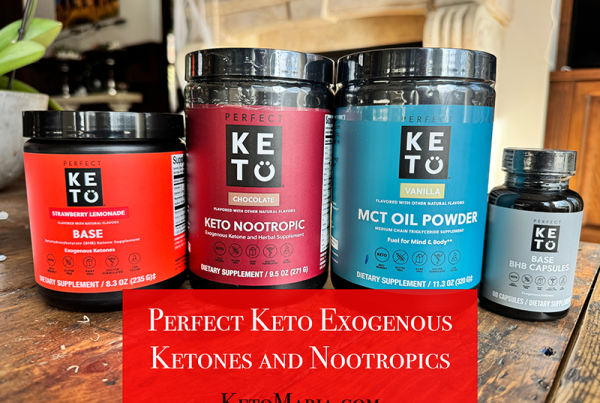

Interesting, I remember learning a little about this in school, but you have gone into so much more detail. Thankfully I stay away from the bad fats for the most part, other than occasionally using canola oil. With the intensity of my training, I need to make sure I give my body the best chance of being successful, so i work on getting this good fats in. I think oxidation is a topic that very little is known about, it is great you are spreading knowledge!
Thank you! I would avoid the canola oil. Nothing really good about that oil. For intensity training MCT oils are great! (coconut oil, butter, etc.)
Interesting post. I’ve been popping omegas for about 15 years, and wouldn’t mind having a good reason to stop. What do you think of Evening Primrose Oil? I’ve been taking it for menopausal symptoms, as it has been highly recommended elsewhere, but it is very high in omega 6.
It isn’t in the same group as these. It is just best to get your omega-3’s from food and large doses of supplements that can be easily oxidized will likely do more harm (inflammation) than good. 😉
Great article, Maria. I’ve heard lots of conflicting views on consuming fish oil supplements within the last couple years. Should we also ditch the fish oils, EPA/DHA, CLO for the constipation protocol? Do we replace those with anything else besides the food sources of omega 3’s? That’s a big part of the plan 🙂
Thanks! Yes, I would include the cod liver oil with the others. Fish oil is EPA/DHA. 🙂
Maria, thank you for all your helpful hints. What about eating Chia Seeds?
Lee
Chia have a lot of omega 3 and 6, but not a lot of saturated fat. They have a lot of carbs so you have to keep track of those with your carb counts. But otherwise they are an ok option. 😉
Hah! Fascinating stuff, as always Maria. Thanks for educating us. Just wondering: could this be why my fingers are so swollen (can’t even wear my wedding ring), even though I’m following a very strict keto diet? I take 4 large salmon oil caps per day. Have also noticed that my sinuses are congested… Could it be the fish oil capsules that are causing all of this, due to the oxidation issue?
I’m not sure if the inflammation would be that drastic, but definitely worth a try removing them. 🙂
Thanks Maria. Will stop taking them and let you know if it helps me. Might help someone else out there too!
Just a question – with oily fish, like anchiovies, from a can or other canned-type form (vaccuum sealed or whatever), did your research show that the heat from the canning process oxidizes the oils in those fish?
Fresher is always better and the same applies to these. So canned will not be as fresh as if you live near a fish market that has fresh ones. But canned ones are typically ok in moderation.
Thank you, Maria, extremely valuable info! I’ve been lately told to give krill oil to my 3-year-old son because of his misbehavior. Now I know not to give 🙂 My son has consumed only a very little omega-6 during his whole life. We don’t use vegetable oils other than coconut oil and olive oil, and he loves cold-smoked salmon. I gave him raw egg yolks already when he was a baby.
Thanks! Yes, getting him good sourced eggs, cold smoked salmon and other fresh sources is a better option. 😉
2 Questions:
(1) Is white fish a good choice?
(2) I buy canned cod liver, is that a good choice?
White fish doesn’t have much fat (169mg omega-3 per ounce) but is still an ok option. The fresher the better for food sources, but it can be an ok option canned. Just try to find the freshest and don’t leave the cans around for long (or store in fridge).
I am so with you on this info! I’ve always been confused about the fermented cod liver oil thing… But I have to say it definitely completely cleared my skin. If I eat beef liver instead (like a half pound per week), do you think the fat soluble vitamin intake could compensate for the cod liver oil (2 tsp a day)? Also, my main question is about DHA intake for breastfeeding. I’ve been limiting fish intake b/c we’re on the west coast and we’re concerned about the radiation from Fukushima and I’ve been taking both krill and cod liver oil… If I cut those, will the DHA in my milk go down? I’ll order some Atlantic salmon if I have to or eat some sardines. But I just really would love to understand how DHA intake translates to DHA in breast milk (do babies whose moms eat no fish still get adequate DHA?).
Thanks for the great info!
In your opinion what is the best oil to cook with? I use Olive Oil/butter mix 99% of the time
I like coconut oil, lard or beef tallow (butter if not sensitive). They are very stable. I would fry with olive oil as it isn’t as stable.
WOW Maria, great article. thank you so very much for this article. I will take heed to and appreciate this very much. another way to look at this… it will save us money as quality fish oil is expensive! thank you for the thorough information and I have been consciously including fish several times a week since I am making healthy lifestyle changes. thank you so much.
Thanks Janet!
maria, I have one more question.. my husband WILL NOT eat any fish whatsoever. he will eat beef and ham and occasionally eggs. do you think I can keep him on the fish oil?
Nope, he is likely getting enough omega-3 if the eggs are good sourced and beef is grass fed. 🙂
Maria, I really love your recipes & information!, but my concern is the mercury in fish, even salmon & sardines has some mercury in it and I have old mercury fillings, which I can not afford to remove; so I’m trying not to eat anything that has mercury in it. I was taking krill oil, but I’m unemployed right now, so I can not afford anything right now. What do you think is best for me?.
You can select the other items in this list (free range eggs, grassfed beef, herbs). 🙂
I am pregnant and take a DHA supplement DEVA vegan 200 mg. I get it from Amazon. Should I not take a supplement? I try and avoid any inflammation. I also eat fresh fish and use coconut oil in my cooking and baking.
As the post lays out the case for, I don’t think any fish oil supplements (EPA, DHA, etc) are good for us. Getting it from fresh food is where you want it to limit inflammation.
NO matter what my husband does his ldl is high and hdl is low. How can I help him. We do not like fish. We eat the majority of foods listed above except the fishy ones. Go through tons of coconut oil, butter, ghee and mct . Am I missing something? His ldl is 147 and hdl is 30.
Depends on what your definition of high LDL is. The traditional definition is flawed. Cholesterol is not the enemy, inflammation is. That is why I look for inflammation markers like triglyceride to HDL ratio, A1C, CRP. Ideally you want your trig/HDL ratio to be 1 or less. The Japanese Lipid Panel study of over 47,000 people found that those with the HIGHEST death rates had total cholesterol of 160 or less. Those with the LOWEST death rates had total cholesterol of 200-259.
His triglycerides are 101 and hdl is 30.
I would get him on a keto diet to lower his inflammation, raise his HDL and lower his triglycerides. You want the trigs to be the same or lower than HDL ideally.
hi maria, I am following your menu plans and supplement plan. I have only been doing this for about 2 months. I am still amazed at all the information I am learning. I know this might seem like a silly question. but here it goes. 1. will continuing to follow this menu plan really lower the hdl and trig? 2. what does this statement mean that you made above…Ideally you want your trig/HDL ratio to be 1 or less and you are 0.69.
3. so for example, if my trig were 60, I would want my hdl 60 also, because that means its a ratio of 1 to 1 omega 6 to omega 3, right??? I think I am getting it.
Following my plans should greatly lower triglycerides and raise HDL. It will also lower A1c. The was a typo (the 0.69 part). In your case, your trig/HDL ratio is (60/60=1) is 1.0 and that is a great number. That doesn’t necessarily mean your omega-6 to 3 ratio was one to one. It just means you are eating a low inflammation diet (which raises HDL and lowers Trigs). 🙂
Hi Maria – Great article! Thank you. I see you mention coconut oil, lard or beef tallow (butter if not sensitive) as your favorite oils to cook in. What about avocado oil? I’ve been using that to roast veggies. I know it has a much higher smoking point than other oils (500 degrees I believe.) Thoughts? Thanks!
That is a good option too. 🙂
So, does this mean we get rid of the Krill oil that you recommend as a supplement?
(Hope not as I literally just purchased and received a new bottle a few days on your recommendation.)
Unfortunately yes. I had to throw all mine out too (my whole family was taking it until a couple days ago).
Maria, thank you so much for clearing this up for everyone and sharing the information in the first place. I appreciate all you do!
In your list of “bad” oils you have Flax Oil (which I agree because my bottle says it’s 57% Omega-3) but where does Hemp Oil stand? My Nutiva bottle says its 2.5 grams Omega-3 and 7.0 grams Omega-6. Should Hemp Oil be avoided as well?
Someone wrote a comment about Chia Seeds. What are your thoughts on Flaxseed and Flaxmeal? I have a difficult time producing a bowel movement and find that flaxseed, flaxmeal and hemp protein help give me some bulk. Is this a wrong approach and if so what is a better way?
From this source it seems quite high in PUFA’s so I would avoid. Again, just get from fresh foods.
http://www.iherb.com/manitoba-harvest-certified-organic-hemp-oil-16-9-fl-oz-500-ml/12354
I avoid flax as it is very estrogenic (phytoestrogens). I also do recommend getting too much fiber as it can elongate the intestines and give you other GI problems. This lifestyle over time should help with movements (and maybe some supplements). I have a supplement plan for constipation here:
http://mariamindbodyhealth.com/supplement-plans/
I will be throwing out my Fish, Flax and Hemp Oil along with my flaxseed and meal. It amazes me how all these years my doctors told me to add fiber. I wish everyone would realize how manstream health/nutrition is ALL wrong. Hopefully I’ll see a slight difference in a week or so. I am hoping to get your supplement package in the near future. Thanks again for all you do. You are saving so many lives!
It is sad how slow the medical community moves. Like with cholesterol or low fat diets. They are still in the 80’s.
I currently use MCT Oil, Coconut Oil, Lard, Kerrygold Butter and Olive Oil (no more Flax and Hemp Oil) I’m looking to add Red Palm Oil to my diet as well. Seeing it so high on the list above I read up on it. I looked on your Amazon Store to see the brands you use and hopefully order some but did not see any. What brand of Red Palm Oil do you recommend? I know all brands are not equal. Your Amazon Store needs a search engine! It would make our lives so much easier. Btw I saw your facebook post about Tropical Traditions coconut oil being 50% off for a gallon so I ordered one! I can’t wait to try theirs.
Very interesting, thank you so much for your diligent research in science to give us the best health possible. I was reading an article on BulletProof Executive and they recommended taking fermented cod liver oil, there’s a company by the name of Green Pastures which make ‘Blue ice fermented cod liver oil’ I’m curious if that has an added health benefit. Thank you!
I would still look to get my omega-3s from food sources. 🙂
Thank you for such a wonderfully informative article! I’ll be ditching the krill oil now. What are your thoughts on Pecan Oil, and if it’s good – is it stable enough for cooking? We love it…
Pecan oil has a lot of omega-6 so I would keep it in moderation.
Would any kind of palm oil be okay, or specifically does it have to be palm kernel oil?
Here is some good info. 🙂
http://www.marksdailyapple.com/palm-oil-nutrition/#axzz3F5o8rt99
Looking at your marshmallow recipe using glycerin, I used in a different recipe. Have you ever heard of anyone having gas from it? I react that way to sugar alcohols too. Sorry to get off subject but you have so many wonderful recipes to look over again & again. 🙂
I haven’t, no. Thanks! 🙂
OK….I will discard the krill oil, but how about the evening primrose oil? Is that still safe to take? (It was on the supplement plan I purchased.) Thanks for your time!
Evening primrose isn’t the same but doesn’t go into your omega-6 count so you want to keep that balance with omega-3s. 😉
Wow Maria!! So you don’t recommend flax anymore?! No more flax waffles or any of your other recipes that contain flax?
I only have a couple recipes with flax (1 waffle, 1 muffin). They can be ok every so often but shouldn’t be in any regular diet no.
Should I give multivitamins to my kids 8 and 6 years?
Yes, that is great. I have some good options here:
http://astore.amazon.com/marisnutran05-20?node=17&page=1
According to LIPID biochechemist Dr. Mary Enig of the Weston A Price Foundation, olive oil is EXTREMELY stable when heated. They even recommend it as a deep frying fat.
“Olive Oil contains 75% oleic acid, the stable monounsaturated fat, along with 13% saturated fat, 10% omega-6 linoleic acid and 2% omega-3 linolenic acid. The high percentage of oleic acid makes olive oil ideal for salads and for cooking at moderate temperatures. ” Dr. Enig
“Olive oil is ideal for frying. In proper temperature conditions, without over-heating, it undergoes no substantial structural change and keeps its nutritional value better than other oils, not only because of the antioxidants but also due to its high levels of oleic acid. Its high smoking point (210ºC) is substantially higher than the ideal temperature for frying food (180ºC). Those fats with lower critical points, such as corn and butter, break down at this temperature.”
“When heated, olive oil is the most stable fat, which means it stands up well to high frying temperatures. Its high smoke point (410ºF) 210ºC is well above the ideal temperature for frying food (356ºF) 180ºC. The digestibility of olive oil is not affected when it is heated, even when it is re-used several times for frying.”
If you don’t heat it above 410 degrees it is ok. I prefer other oils for frying.
Cemmerich, I prefer other oils as well and use olive only for salads, but only because it’s liquid at room temp. I’d MUCH rather use lard or tallow, and when I make a warm salad, I do.
My comment was made specifically to address this caution in the post, “Olive oil: 9.9% PUFA (with 14% saturated fat) (although this one should never be used for cooking which will cause oxidation. So only use in dressings, etc.)”
It’s a common warning, but it’s been pretty thoroughly debunked.
Keep in mind that olive oil has a LOT of omega-6. So it also skews your balance with omega-3’s.
With this new info about fish oil krill oil, and grinding our own flax seeds, as they go bad when purchased pre- ground. What about other nut flours such as almond flour? Should we be concerned?
Almond oil is about 17% PUFA making it similar to olive oil. 😉
Hi, Maria!
I’m currently taking a mandatory “Fitness and Wellness” course, and this week we’re on the nutrition section and it is soooo frustrating reading my textbook and all the USDA materials! So much inaccuracy! I recently had to plug all of my food consumption for 2 days into the USDA’s Supertracker and of course I’m “under” my RDA for carbs and “over” with those dangerous saturated fats like coconut oil (*sighs exasperatedly in the government’s direction*) but my nutrient profile is pretty solid where I know it counts.
My only concern is that I am apparently lacking in my lineolic acid consumption (5 g compared to the recommended target of 12 g). I know (or at least keep being told) that linoleic acid is essential to one’s health as the body cannot produce it itself, and that CLA and ALA are good for you, but I also know that, as you’ve explained in this post, omega-6 fats are not that great for you. My biggest source of linoleic acid is the tablespoon or so of sunflower seed butter that I don’t even eat that often (I just happened to have it on the day I tracked). The USDA suggested, “liquid vegetable oils such as soybean oil, corn oil, and safflower oil” after telling me I wasn’t getting enough, and no way am I touching those!
So, my question is: is this really something I should worry about, and if so, do you have any recommendations as to what foods I should be eating to improve it?
Thank you so much. 🙂
I remember sitting through a lot of those frustrating classes. Good sources of linoleic acid are oily fish, eggs and even beef tallow, butter and lard. 🙂
Last night I found out from Wikipedia that glycerine is a sugar alcohol.
Re: Fish oils I had heard that Brian Peskin was trying to get people of them and into using PEO’s Parent Essential Oils.
After years, Robert Rowan, MD reversed his views on fish oil and the two have a book out on it. PEO Solution – Conquering Cancer, Diabetes and Heart Disease with Parent Essential Oils by Brian S. Peskin and M.D. Robert Jay Rowen (2015)
This is so interesting! I have often wondered about my fish oils being stable enough. Thank you so much Maria!
Thanks!
And for those of us who cannot eat fish(I HATE FISH) what canwe do??
hi there, I asked Maria the same question as my husband hates fish and this is her response below:
I hope that helps you. :):):)
cemmerich October 2, 2014 at 7:25 pm / Reply
You can select the other items in this list (free range eggs, grassfed beef, herbs). 🙂
Eat one of the other things on my list above. 🙂
Maria, could you please comment on the Mercola astaxanthin supplement? I had concerns about krill/fish oils a few years ago and switched to astaxanthin. While I think the Mercola brand astaxanthin supplement is a good one, I’d love it if you would comment on it. Thanks!
I think it is a good option. 🙂
What are your thoughts on Bacon fat?
It is a great fat. I use it in my bacon mayo recipe. 🙂
I have Hashimoto’s & am on a very limited diet. I must be gluten-free, egg-free, and dairy-free. I eat meat protein and lots of veggies, minimal fruit. I use olive oil liberally on my veggies. You’re saying olive oil is high in Omega 6 so I should avoid olive oil? I thought olive oil was a good oil. What do I substitute? And I use a lot of flax seeds I grind myself as a coating for chicken. So flax is out too? My diet is already severely limited because of the Hashimoto’s. Suggestions? thanks
Olive is a good oil, but with this lifestyle, it shouldn’t be your primary oil. One of the other oils higher in saturated fat should be. MCT oil is a great option. 🙂
Because of the Hashimoto’s I have ongoing inflammation. Your 2012 MCT post noting “MCT are absorbed more like carbohydrates and are used and burned quickly by the body and not stored in the fat cells…..” I’m 5’5″ and weigh 103 pounds. My goal is to gain weight. The “not stored in fat cells” suggests that MCT oil could cause weight loss. Which is the lesser of 2 evils: the Omega 6 in olive oil or losing weight by using MCT oil? BTW, I’ve learned so much from you & I have 5 of your books 🙂
I would do more saturated fats than MCT oils in your case (lard, tallow, butter if not dairy sensitive). 🙂
Hi Maria,
I’ve been using Green Pastures Blue Ice Royal Butter Oil/Fermented Cod Liver Oil capsules which I always keep in my fridge. They contain a high source of vitamin D3 and more, and I was under the impression that the process this company use to ferment the product would protect it from oxydisation… Now I’m worried that I’ve just spent a fortune (this stuff is EXPENSIVE) on something that is doing exactly the opposite of what I wanted! According to Sally Fallon et al, this is a really great supplement to take.
Any opinion on this one? Thanks!
That does help with the oxidation, but large amounts of omega-3 in the body will still be there for a while oxidizing in our body. So we need to watch amounts as well as the balance with omega-6. 🙂
Thanks for that! I guess I’ll finish what I’ve got and then let the fish oil be. I already eat lots of the foods you mentioned, thanks for sharing!
Probably the best thing for you would be making sure your omega-6s are low enough. 🙂
Thanks, they should be ok. Last time I checked I didn’t consume too much with a lot of Omega 6… I’ll check again and keep an eye on it!
Maria,
We have a peanut allergy in our family and eat Sunflower Butter…is this not a good option? Also, I saw that another person mentioned Green Pastures fermented Cod Liver oil. Does the fermentation process make it less oxidative? Or does the same rule apply as with traditional fish oil supplements?Thanks!
Melissa
Make sure it is very fresh and stored in the fridge. A better option might be almond butter (if the allergy is only peanuts and not all nuts). 🙂
Wow Maria!! I finally took the time to read this great post…what a ‘attitude shift’ this produces! I was taking fish oil for years and now krill oil capsules 3 times a day no less but off in the trash it goes as I trust you implicitly!…
Thanks for posting and thanks again for the amazing work that you do.
With much gratitude, M.J.
Thanks!
Maria–this advice will only work if:
1. You aren’t allergic to fish of any kind
2. Your Omega-3 converter isn’t broken (like it is in many men)
My husband (a man over 50–broken converter) is allergic to finfish, so just about all of your advice here is useless to me. Here’s what I do for him without resorting to prescription Lovaza (Big Pharma’s answer to fish oil)–CALAMARI OIL. Calamari has no fins, no shell, and he can tolerate it just fine. Carlson brand makes a Norwegian calamari supplement: http://www.amazon.com/CalaOmega-tie-pack-90-30-Softgel/dp/B0038ND0EO
I would still argue that it is better to get from fresh food sources (grass fed beef, spices, eggs, etc). 🙂
Great article Maria. Thanks so much for sharing your knowledge. It is really appreciated.
Thanks!
How do I get a good amount of Omega 3’s w/o fish? I’m freaked out about eating fish since the Japan meltdown and the reports of radioactivity throughout the Pacific.
Thanks!
I have lots of options listed above. You really don’t need much omega-3 if you are greatly limiting your omega-6 (which is what this lifestyle does). 🙂
I had no idea… The more my joints hurt, the more fish oil I would take.
Thank you so much for the info!
Maria, I am just in shock reading about the fish oil supplements. I have been grain and sugar free for over two years hoping that it would help me with my out of control Rheumatoid Arthritis. Unfortunately the inflammation and destruction of my joints is in high gear . My hands are totally deformed and increasingly useless . I have not many healthy joints left . it is a very difficult life , heart breaking when I am unable to even hold my grand children . I have been taken 2 fish oil gel caps for every meal (6 a day). I will immediately stop !
Could this really be the detrimental reason for my daily misery? I will keep you posted!
Thank you immensely for your eye opening article !
A keto diet can be very helpful for your condition. Here is a recent client.
“My name is Claudette Melanson, and I’m a 44 year old, living in Ontario, Canada. About two years ago, I was diagnosed with Rheumatoid Arthritis. In college I’d discovered the low carb diet and kept a healthy weight most of my life, however, when I moved to Ontario in 2009, to be with my husband, we were having such a good time I completely let go of low-carbing and allowed myself to eat whatever I wanted. We were so bad, eating tons of sugar and a lot of foods with wheat in them. It was two years after this that I started having problems. My hands and shoulders were locking up and I was in horrible pain. I finally got referred to a Rheumatologist, who put me on Prednisone. This helped some of my symptoms but caused a whole host of new ones. My hormones went completely off the rails and I packed on thirty pounds. Finally, I found Maria’s blog. A naturopath had suggested I give up gluten, but I didn’t want to hear it. I loved my pizza and the occasional sweets. When I started reading Maria’s blog, however, all of the science behind everything she explained made sense to me. Her recipes made me realize I could still eat pretty much anything I wanted and do it in a healthy way. She also made me see why I had to keep gluten out of my system forever and not eat 80/20, as I did when I thought I was being healthy. My husband and I downloaded all of her books and added supplements to our routine. We started eating natural meats, eggs and dairy and buying only organic produce. Last March I could barely climb a flight of stairs. After adopting the Maria way, my pain went away! My joints are free and I was going to the gym and lifting heavy weight and taking Body Pump classes when before, I could barely move and couldn’t lift a full cup of coffee. I finally was able to lose some weight after switching to a Keto diet (the prednisone had made weight loss impossible!), twenty-three pounds and my husband lost 53 pounds!! Best of all Maria helped me get back to doing what I love—writing. I’d been working on a novel when my RA pain put that on permanent pause. After following Maria’s way, not only did I have the energy to work on it outside my 44 hour work week, I was typing pain free! Now my first novel is published on Amazon and it is in large part thanks to Maria! I wanted to give back and offer a giveaway of three print copies of Rising Tide: Dark Innocence. This book is geared toward a young adult audience, but I’ve had several adult readers who really enjoyed it. There is no strong sexual or violent content, just FYI!
Thank you again Maria! Your way is the only way for us!” – Claire
Thank you Maria ! I have all of your books except the Keto one! Hope I do not have to give up my beloved morning coffee which I look forward to when I go to bed t night already ! LOL.
Maria~ What about OmegaXL? It’s supposed to be super uber-clean from NZ, highly bioavailable, from mussels instead of fish or other marine animals, etc. Here’s their site OmegaXLKing.com
When your omega-6 intake is really low (like with this lifestyle) you still only need very little omega-3. So any extra will remain in the body for days to be oxidized. I would just get from food. 🙂
Hi Maria, what’s your take on fermented fish oil? We’ve been taking Green Pastures capsules because a) my partner doesn’t find most oily fish tasty and b) we can’t afford daily salmon, and it seemed c) healthier than eating tinned tuna/salmon/sardines/mackerel twice a week. Also because Mark Sisson recommended the product as a good traditional source of Omega-3s. I was under the impression that fermented fish oil was more stable but maybe it’s all oxidized after all? I’d hate to think I was doing us more harm than good, especially since it’s a pricey product in its own right (but still more affordable around here than fresh fish). Barring being able to afford fresh oily fish regularly, would you recommend tinned vs smoked? Many thanks!
Even if the source is high quality and un-oxidized when consumed (kept cold, out of light, fresh, etc), when eating keto adapted and omega-6 intake is low, you don’t need very much omega-3. So taking large amounts in a supplement, it will remain in the body for a long time before getting used (warm body, oxidizing it).
I am wondering about taking GLA (from borage, evening primrose or black currant seed oil) if that is a PUFA also. Wouldn’t that be rancid too? I am keeping my black currant seed oil caps in the fridge now, but they weren’t kept there prior to purchasing like the codliver-butter oil blend I take for Vit A, D & K and EFAs.
GLA is an omega-6 so not the same issue as omega-3s. 🙂
Interesting; so these particular O-6 PUFAs don’t easily oxidize? Thank goodness. One less thing to be pricey that I take lol
Hi, really love all the information!. I wanted your opinion on cassava flour – is it good for low carb & is it good for your body?. What is the best flour – coconut?. Thanks so much for replying on my recent & current questions.
Casava flour has a lot of carbs. I like coconut and almond flour best. 🙂
We ordered Barleans flax oil and garden of life cod liver oil to help boost my husband’s low testosterone levels per research and our chiropractor . Any ideas on alternatives? Thanks 🙂
Not a good recommendation. Flax is very estrogenic. Try MACA and zinc. And no alcohol.
http://astore.amazon.com/marisnutran05-20/detail/B0045W4DYS
Wow, I’ve been taking a teaspoon of fermented cod liver oil daily for a long time, based on the recommendation of the WAPF. I don’t want to buy any more of this if it isn’t going to be beneficial. It’s expensive too. I’ve also been giving it to my kids. Now I need to rethink things…
Hi Maria,
I have been diagnosed with dry eye syndrome and my eye doctor recommends taking fish oil. Will the Keto Diet and all of it’s delicious fat improve dry eye syndrome? I’ve been following your accelerated plan for just about a month now. I’m down 17.6 pounds and starting to feel much better. However, my eyes are still a bit dry.
Thanks for your help!
I would think that over time you would see some improvement. I would take coconut oil and other healthy fats listed above instead of fish oil. 🙂
Hi Maria, where does the smoke point of fat sit in this discussion? Should the focus be on the amount of sfa rather than smoke point? Because coconut oil smoke point is at a low 350 f. Thanks
Yes, that is a consideration and if you are doing high temperature cooking then a beef tallow might be a better option. 🙂
Have you written (or can you recommend) any in-depth articles on flax seed/meal? I’m so confused about this and I’d like to understand what the latest research says, and the reasons for the conclusions. I understand that it’s phytoestrogenic like soy but I’ve read different things about whether that is okay or not, as phytoestrogens supposedly operate differently than estrogens, and differently than the estrogen-mimicking chemicals in plastics.
Yes. It is estrogenic and I do not recommend it!
I really like flavoring Asian dishes with a little sesame oil? Would you not even recommend 1 Tbs for a whole dish?
Yes. It would be ok.
You talk about fish oils, but does vegetarian DHA – from algae – cause the same problems? Thanks so much!
Yes, they are the same. Always get from only the freshest foods.
I read this post awhile back and adjusted my supplements, as suggested. Then, the situation came up at work today (for privacy reasons I will be vague) and I immediately thought of your post Maria and shared it on FB as well as shared the link. A friend started taking high doses of Fish Oil and it and made asthma symptoms and joint pain worse. When I was asked if this made sense to me my brain pulled up this info. Thank you!
Awesome!
I stopped taking fish oil, but my dry eyes returned. I started retaking it, and the problem went away again. Is there a better alternative? Just eating keto doesn’t seem to be enough for my eyes. (I wear contacts.)
Evening primrose oil. 1300 mg three times a day!
http://astore.amazon.com/marisnutran05-20/detail/B0002406LC
Hi Maria, just a question about the supplementation with fish oil or CLO. We take vitamin D3 too and since this is best taken with fat/oil , I don’t know how to replace the fish oil without breaking my fast. Well actually, it’s more a question concerning my son and husband, since they take their supplements in the morning before work/school. I can take mine at noon, when I eat breakfast/lunch. I could put the supplements in their lunchboxes, but for my son this could be a problem as I don’t think he will take them all the time. How can I give him the supplements (Vit B12, B complex, iodine, K2, but specificly the D3) without breaking his fast? K2 is best taken with D3 (and A), but D3 needs a fat/oil. Is there another ‘fat’ or oil I can give to him in the morning without exceeding the 50cal so he doesn’t break his fast? I don’t think he’s willing to take a spoon of olive oil in the morning, or maybe some butter? Like 5grams? That would be +/-40cal. It’s not so easy with kids. He takes what I give him, but to take the supplements to school, where his friends probably will be asking all kind of questions ??? I wouldn’t want him to turn against the supplements and the keto lifestyle in general. Don’t know how to best solve this. Some advice please. Thank you so much!!!
Yes, A, D, E and K are fat soluble. So you need to take them with a fat. The best is to take with first meal but if that doesn’t work taking with a little oil (40 calories or less) should maintain the fast fairly well.
Thank you for all your great advice!
😍😍😍
They say to take fish oil when pregnant and nursing for brain health for baby. What should I take instead?
Just eat fresh fish and seafood a couple times a week. And eat keto so your omega-6 to omega-3 balance is good (no vegetable oils or seed oils, etc).
Which seafood company do you recommend?
I have a few good companies listed on my shopping guide 🙂
https://mariamindbodyhealth.com/keto-shopping-and-supplement-guide/?_new_pantry=proteins